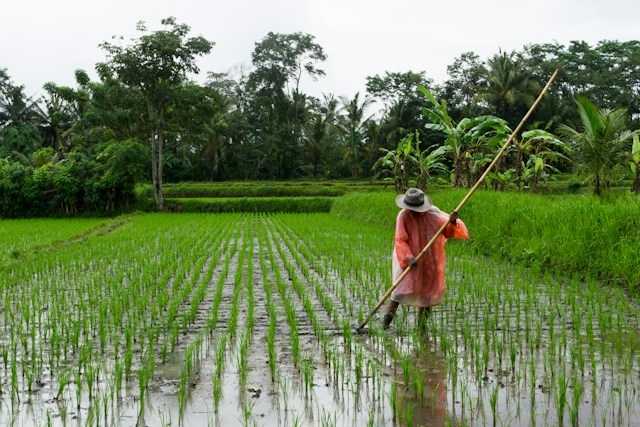How is biotechnology enhancing food security worldwide?

In our rapidly evolving world, the quest for sustainable food security stands as an urgent challenge. With burgeoning populations, shifting climate patterns, and finite natural resources, the global food system is under immense pressure. Biotechnology emerges as a beacon of hope, offering innovative solutions to enhance agricultural productivity and resilience. At the intersection of science and agriculture, advanced biotechnologies such as genetic engineering, genome editing, and CRISPR Cas are revolutionizing how we approach the cultivation of crops and management of food systems. These biotech advancements promise to bolster food production, ameliorate food insecurity, and foster a more robust and sustainable agricultural sector that can withstand the complexities of climate change and the demands of a growing global populace.
The nexus between biotechnology and agricultural productivity
Crops are the bedrock of food systems worldwide, feeding billions and forming the backbone of many economies. However, traditional farming methods are increasingly challenged by climate change, land degradation, and water scarcity. Here is where biotechnology steps in as an indispensable ally.
Avez-vous vu cela : The benefits of a local translator in Vancouver for businesses and individuals
Through genetic engineering and genome editing, scientists have successfully developed crop varieties that exhibit resistance to pests, diseases, and extreme weather conditions. These genetically modified (GM) and gene-edited crops can yield more while using fewer resources, a critical factor in achieving increased productivity on existing farmland.
Moreover, agricultural biotechnology enables the fortification of crops with essential nutrients, addressing not only the quantity but also the quality of food produced. This biofortification is a vital tool in combating malnutrition, especially in developing countries where dietary deficiencies are prevalent.
A lire aussi : How Are Cross-Platform Capabilities Changing the Gaming Industry?
Enhancing climate resilience in crops
Climate change presents one of the most formidable challenges to food security. Rising temperatures, unpredictable weather patterns, and the increased prevalence of extreme weather events can devastate crops, jeopardizing the livelihoods of farmers and the food supply of communities.
Biotechnology offers a suite of tools to tailor crops to be more resilient in the face of climatic fluctuations. By identifying and manipulating genes responsible for drought tolerance, heat resistance, or salt tolerance, biotechnologists can create crops that maintain yield stability even under adverse environmental conditions.
These advancements are particularly crucial for staple crops like rice, wheat, and maize, which are sensitive to climate variability and are fundamental to the diets of billions. The strategic use of biotech crops in agriculture can significantly contribute to mitigating the risks posed by climate change on food production.
The global impact on food security
Food security is a multifaceted issue, requiring a comprehensive approach that encompasses availability, access, utilization, and stability of food supply. Biotechnology intersects all these dimensions, offering a pathway to securing the world’s food needs.
In countries grappling with food insecurity, biotech crops are not merely an academic concept but a practical solution to boost agricultural output and ensure a dependable food supply. Genetically modified crops that are resistant to pests and diseases can reduce crop losses and increase yields, thereby enhancing the local food supply.
Additionally, agricultural biotechnology has the potential to lower production costs for farmers by reducing the need for chemical inputs like pesticides and fertilizers, making food more affordable and accessible. For smallholder farmers in developing countries, these savings can be significant, enabling them to invest more in their livelihoods and contribute to the local economy.
Agricultural biotechnology and global regulations
The adoption of biotech crops is subject to strict regulations, especially considering public concerns over genetically modified organisms (GMOs). Countries around the world have implemented varying levels of regulatory frameworks to ensure the safety and efficacy of biotech crops.
The United Nations and other international bodies have established guidelines to facilitate the responsible development and deployment of agricultural biotechnology. These regulations aim to protect biodiversity and ensure that genetically engineered crops do not adversely affect human health or the environment.
In the United States and other developed nations, regulatory agencies such as the USDA and the FDA rigorously evaluate genetically modified crops before they reach the market. Such measures are crucial to maintaining public trust and fostering a sustainable expansion of biotech crops.
The future of food: innovations in crop improvement
The future of food security hinges on our ability to harness biotechnological innovations for sustainable crop improvement. Techniques like CRISPR Cas have opened new possibilities for precise gene editing, allowing scientists to enhance desired traits in plants more efficiently and accurately.
The potential applications are vast, from developing crops that can thrive on marginal lands to creating plant varieties with improved nutritional profiles. As biotechnological research advances, we can expect a continual emergence of transformative approaches to food production.
The integration of biotechnology in agriculture promises a more resilient food system that can adapt to global challenges. By supporting the development and dissemination of biotech crops, we are paving the way for a future where food security is a reality for all.
In conclusion, the role of biotechnology in enhancing food security worldwide is both profound and indispensable. By leveraging genetic engineering, genome editing, and other biotechnological tools, we can develop crops that are more productive, climate-resilient, and nutritious. Biotech crops possess the potential to address food insecurity, particularly in developing countries where agricultural challenges are most acute. Despite regulatory hurdles and public skepticism, the benefits of agricultural biotechnology are clear, and its contributions to global food systems are undeniable. As we continue to innovate and apply these technologies wisely, biotechnology stands as a pillar of hope for a food-secure future for all.
